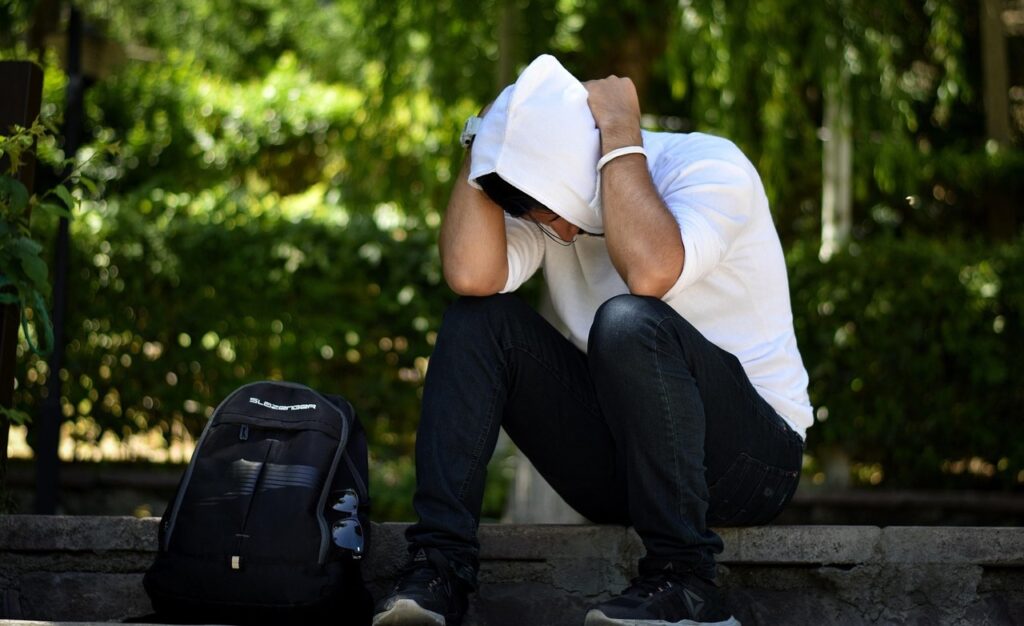Male depression affects millions of men worldwide, yet it remains one of the most underdiagnosed and misunderstood mental health conditions. While depression impacts both men and women, the way it manifests in men often differs significantly from traditional symptoms, leading to delayed diagnosis and treatment. Understanding these unique presentations is crucial for early intervention and successful recovery.
How Male Depression Differs from Depression in Women
Depression in men frequently presents through a mask of anger, irritability, and aggression rather than the sadness and emotional withdrawal typically associated with the condition. This fundamental difference contributes to the alarming statistic that men report depression at half the rate of women—approximately 1 in 16 men compared to 1 in 8 women.
Men experiencing depression may exhibit:
- Increased irritability and short temper
- Aggressive behavior or verbal outbursts
- Emotional numbness or detachment
- Difficulty expressing emotions verbally
- Tendency to externalize problems rather than internalize them
This different symptom presentation often leads to misdiagnosis or complete oversight by healthcare professionals, with primary care physicians missing depression in men over 50% of the time.
Recognizing the Signs and Symptoms of Male Depression

Emotional and Behavioral Symptoms
Male depression manifests through various emotional and behavioral changes that may not immediately appear connected to mental health:
Anger and Irritability
- Frequent outbursts over minor issues
- Road rage or workplace conflicts
- Impatience with family members and colleagues
- Feeling constantly on edge
Risky and Escapist Behaviors
- Engaging in dangerous sports or activities
- Reckless driving or gambling
- Increased sexual promiscuity
- Workaholic tendencies as avoidance mechanism
Substance Use and Self-Medication
- Increased alcohol consumption
- Drug use as emotional numbing
- Prescription medication misuse
- Using substances to cope with stress
Physical Symptoms in Men
Men are more likely to report physical symptoms rather than emotional distress when seeking medical help:
- Chronic headaches and migraines
- Back pain and muscle tension
- Digestive issues and stomach problems
- Erectile dysfunction and decreased libido
- Chronic fatigue and sleep disturbances
- Unexplained aches and pains
- Changes in appetite and weight
Workplace-Specific Depression Triggers
The modern workplace presents unique challenges that can trigger or exacerbate male depression:
Career-Related Stressors
- Job loss or unemployment
- Workplace harassment or discrimination
- Financial pressure and economic instability
- Work-life balance struggles
- Career stagnation or lack of advancement
Performance Pressure
- Unrealistic expectations and deadlines
- Competitive work environments
- Fear of failure or inadequacy
- Imposter syndrome in professional settings
Understanding the Root Causes of Male Depression

Environmental and Life Stressors
External factors play a significant role in triggering depression in men:
- Death of a loved one or relationship breakdown
- Major life transitions (divorce, retirement, empty nest syndrome)
- Financial difficulties or bankruptcy
- Legal problems or criminal charges
- Chronic illness diagnosis
Genetic and Biological Factors
Research indicates that depression has a strong hereditary component:
- Family history of depression increases risk by 2-3 times
- Genetic variations affecting neurotransmitter function
- Hormonal changes, particularly declining testosterone levels
- Brain chemistry imbalances involving serotonin and dopamine
Medical Conditions and Medications
Certain health conditions and treatments can contribute to depression:
Medical Conditions
- Heart disease and cardiovascular problems
- Diabetes and metabolic disorders
- Chronic pain conditions
- Neurological disorders
- Cancer and cancer treatments
Medications
- Blood pressure medications
- Cholesterol-lowering drugs
- Certain pain medications
- Hormonal treatments
- Some antibiotics and antivirals
Traumatic Life Events and Childhood Experiences
Past trauma significantly impacts mental health in adulthood:
- Childhood abuse or neglect
- Military combat exposure
- Accidents or natural disasters
- Witnessing violence or traumatic events
- Bullying or peer victimization
The Critical Link Between Male Depression and Suicide
Men face a disproportionately high suicide risk, completing suicide at four times the rate of women despite reporting depression less frequently. This alarming statistic highlights the urgent need for better recognition and treatment of male depression.
Warning Signs of Suicidal Ideation
- Talking about death or suicide, even jokingly
- Giving away possessions or making final arrangements
- Sudden mood improvement after prolonged depression
- Increased risk-taking behavior
- Social withdrawal and isolation
- Expressing feelings of hopelessness or being a burden
Cultural and Social Factors
Traditional masculinity norms contribute to suicide risk by:
- Discouraging help-seeking behavior
- Promoting emotional suppression
- Creating shame around mental health struggles
- Emphasizing self-reliance and independence
Comprehensive Treatment Options for Male Depression
Psychotherapy Approaches

Cognitive Behavioral Therapy (CBT)
CBT remains the gold standard for treating depression, helping men identify and change negative thought patterns and behaviors. This approach is particularly effective for men as it focuses on practical problem-solving strategies.
Male-Specific Therapy Approaches
- Gender-sensitive therapy that acknowledges masculine norms
- Group therapy with other men facing similar challenges
- Adventure therapy and outdoor-based interventions
- Sports psychology techniques adapted for depression treatment
Interpersonal Therapy (IPT)
IPT focuses on improving relationships and social functioning, addressing communication patterns that may contribute to depression.
Medication Options
Selective Serotonin Reuptake Inhibitors (SSRIs)
- Sertraline (Zoloft)
- Fluoxetine (Prozac)
- Escitalopram (Lexapro)
Serotonin-Norepinephrine Reuptake Inhibitors (SNRIs)
- Venlafaxine (Effexor)
- Duloxetine (Cymbalta)
- Desvenlafaxine (Pristiq)
Alternative Treatments
- Electroconvulsive Therapy (ECT) for severe cases, showing 80% complete remission rates
- Transcranial Magnetic Stimulation (TMS)
- Ketamine therapy for treatment-resistant depression
Technology-Based Mental Health Solutions
Modern digital tools offer accessible support for men who may be reluctant to seek traditional therapy:
Mental Health Apps
- Mood tracking and monitoring applications
- Meditation and mindfulness apps
- Cognitive behavioral therapy apps
- Peer support platforms
Telehealth Services
- Online therapy sessions
- Virtual support groups
- Remote psychiatric consultations
- 24/7 crisis intervention services
Effective Coping Strategies and Lifestyle Modifications
Physical Activity and Exercise

Regular exercise serves as a powerful antidepressant:
- Releases endorphins and improves mood
- Provides structure and routine
- Offers social interaction opportunities
- Builds self-esteem and confidence
Recommended Activities
- Strength training and weightlifting
- Team sports and competitive activities
- Outdoor activities like hiking or cycling
- Martial arts and combat sports
Stress Management Techniques
Mindfulness and Meditation
- Daily meditation practice
- Deep breathing exercises
- Progressive muscle relaxation
- Mindful movement practices
Time Management and Organization
- Setting realistic goals and expectations
- Breaking large tasks into manageable steps
- Prioritizing self-care activities
- Creating work-life boundaries
Building Social Support Networks
Strong social connections are crucial for recovery:
- Maintaining friendships and family relationships
- Joining support groups or men’s groups
- Participating in community activities
- Seeking mentorship or becoming a mentor
Cultural and Ethnic Considerations in Male Depression
Understanding Cultural Differences
Depression presentation and treatment acceptance vary significantly across cultures:
Hispanic/Latino Men
- May express depression through physical symptoms
- Strong emphasis on family and community support
- Religious and spiritual coping mechanisms
- Language barriers in accessing treatment
African American Men
- Higher rates of undiagnosed depression
- Mistrust of healthcare systems
- Preference for informal support networks
- Integration of faith-based interventions
Asian American Men
- Cultural stigma around mental health
- Emphasis on academic and professional achievement
- Intergenerational family dynamics
- Traditional healing practices integration
Culturally Sensitive Treatment Approaches
- Incorporating cultural values and beliefs
- Using culturally appropriate assessment tools
- Training therapists in cultural competency
- Addressing systemic barriers to care
Supporting Male Family Members and Friends

Recognition and Intervention
Family members and friends play a crucial role in identifying and supporting men with depression:
How to Approach a Depressed Man
- Use direct, non-judgmental communication
- Focus on specific behaviors rather than emotions
- Offer practical support and assistance
- Avoid minimizing or dismissing concerns
Creating a Supportive Environment
- Encourage professional help without pressure
- Maintain normal routines and activities
- Be patient with mood changes and irritability
- Learn about depression and treatment options
When to Seek Emergency Help
Immediate intervention is necessary when a man:
- Expresses suicidal thoughts or plans
- Engages in extremely risky behavior
- Shows signs of psychosis or severe agitation
- Threatens violence toward others
- Experiences severe substance abuse episodes
Prevention Strategies and Early Intervention
Building Resilience
Developing emotional resilience can help prevent depression:
- Teaching emotional intelligence and expression
- Building problem-solving skills
- Developing healthy coping mechanisms
- Creating strong social support networks
Workplace Mental Health Programs
Employers can implement programs to support male mental health:
- Employee assistance programs (EAPs)
- Mental health awareness training
- Stress management workshops
- Flexible work arrangements
Community-Based Prevention
- Men’s health awareness campaigns
- Community support groups
- Educational programs in schools
- Healthcare provider training
Moving Forward: Breaking the Stigma
Addressing male depression requires a comprehensive approach that challenges traditional masculine norms while providing accessible, effective treatment options. By recognizing the unique ways depression manifests in men and creating supportive environments for help-seeking, we can significantly improve outcomes and save lives.
If you or someone you know is struggling with depression, remember that seeking help is a sign of strength, not weakness. Professional treatment is available, effective, and can lead to full recovery and improved quality of life.
Take Action Today: Contact a mental health professional, call a crisis helpline, or reach out to a trusted friend or family member. Depression is treatable, and recovery is possible.
Frequently Asked Questions
Q: How can I tell if my anger and irritability are signs of depression?
A: If your anger is persistent, disproportionate to situations, accompanied by other symptoms like sleep problems or loss of interest in activities, and interfering with your relationships or work, it may be a sign of depression. Consider speaking with a healthcare professional for proper evaluation.
Q: Are antidepressants effective for men?
A: Yes, antidepressants can be highly effective for men. SSRIs and SNRIs show similar efficacy rates in men and women. However, some men may experience side effects like sexual dysfunction, which should be discussed with a healthcare provider to find the best treatment approach.
Q: How long does it take to recover from male depression?
A: Recovery time varies significantly depending on the severity of depression, treatment approach, and individual factors. With proper treatment, many men begin to feel improvement within 4-6 weeks, though full recovery may take several months to a year.
Q: Can exercise really help with depression?
A: Absolutely. Regular exercise has been shown to be as effective as medication for mild to moderate depression. It releases endorphins, improves sleep, boosts self-esteem, and provides structure and social interaction opportunities.
Q: What should I do if a male friend or family member refuses to seek help?
A: Continue to offer support without being pushy. Share information about depression and treatment options. Consider involving other trusted friends or family members. In crisis situations, don’t hesitate to contact emergency services or a mental health crisis line for guidance.



